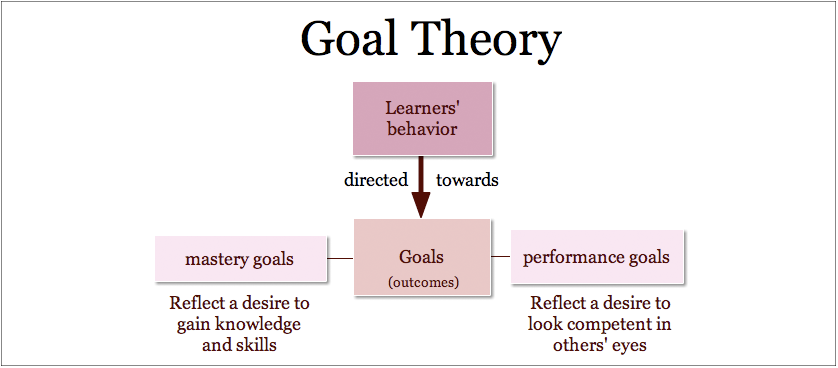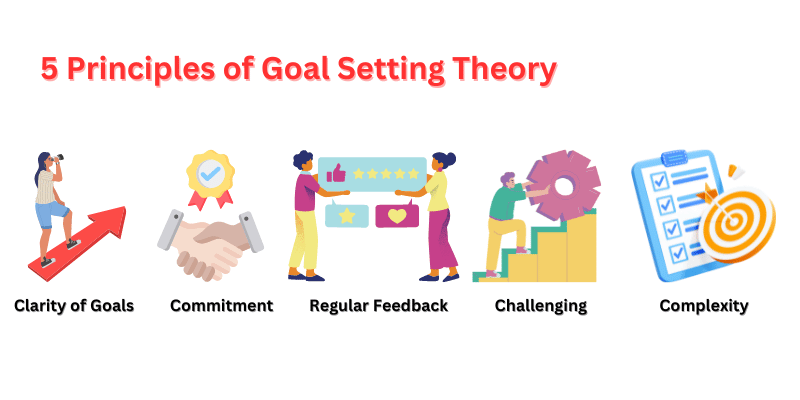If you are going through life, one step at a time, and accepting what comes your way, then I am here to tell you that goals help in much more ways than you can think. Goals give, especially they are SMART goals have the importance of setting a pathway for your life. The difference lies in envisioning a perfect future or letting life happen to you.
Importance and Value of Goal Setting

Setting a goal may seem daunting because it takes a lot of planning and adds unwanted pressure to achieve something. However, in this article, I will be taking you through ways in which setting a goal becomes a happy and fun activity. The way it works is all based on your approach, so let’s take this article to improve your approach toward personal development through specific goals.
Understanding Goal Setting
A. What is Goal Setting?
However, before we begin applying complex topics to our life to set and achieve relevant goals, let’s first start from the basics. What even is goal setting?
Well, to set a goal means to envision a change that is relevant and achievable, breaking it into appropriate steps, and then phasing out personal development on the basis of each phase. The importance of goal setting lies in the fact that goals can help evaluate existing attributes to identify what you want your future to hold for you.
B. What Does Research Say about Goal Setting?
Based on research data to achieve your goals sets you on the track for achieving life goals. On a study done on university students on campus in Canada, students were given tasks to complete a research assignment. For one group, the steps of goal setting were broken down and for the other, they were not given any milestones to achieve. Both groups received the same support from teachers and peers, yet Group 1 performed much better
C. What is Goal Setting Theory?

The research discussed above used the Goal Setting Theory to support their findings, leading to essentially the same conclusion that setting goals helps one to gain direction, and increases motivation and productivity. To achieve a goal, therefore, becomes much easier when goals in life state clearly what has to be done for the larger goal
D. The 5 Principles of Goal Setting Theory

Locke and Gary in their paper identified five basic principles of goal achievement
- Clarity of goals
- Commitment towards change
- Regular feedback
- Challenging perspectives
- The complexity of the task that matches skillset
Benefits of Goal Setting
A. How Goal Setting Improves Performance
Up until this point, you might be asking WHY?
A simple answer would be that goal setting is important for the average human to be given a push in the right direction. Think of the example of an athlete, their reasons to set goals are very specific and highlight the value of goal setting. Aimlessly working without any vision may even be considered a waste of time
B. The Importance of Goal Setting For Students

Achieving goals gives a sense of purpose to students in their personal goals’ life or even professional context. Depending upon life goals, students must be goal-setting because how else would they know what they want in their professional career
C. How Goal Setting Motivates Individuals
Setting goals gives a boost to morale for any individual, as it clarifies to a person their ultimate goal in life, in the profession, or in any other form. Then setting and achieving goals holds the value of improving one’s life in smaller steps, which motivates individuals to set specific tasks that improve their chance of success.
D. The Role of Goal Setting In Mental Health

The process of setting goals holds value for personal growth but is equally intertwined with mental health and without proper planning, the value of goal setting can be lost and lead to greater anxiety or feeling of loss. Imagine your goal is to lose weight and without consideration of your mental health, you have set milestones of losing a certain body weight each month. In case you fluctuate or miss out on these milestones a few times, the benefits of goal setting are then lost and you can spiral into non-productivity and undo months of work
E. The Significance of Goal Setting in Business and Organizations
Set goals in life is much similar to professional and organizational goal setting. The clear goals that are being set in corporations are different but essentially follow the same path to reach your goal. However, the difference lies in the fact that achievable goals in life are for one person, but organizations are working with teams and large groups of people. This, however, still holds the same benefits of setting goals i.e. motivation and productivity with an envisioned change
SMART Goals

A. What Are Smart Goals?
- Specific: It is important to set goals that are specific to a certain field, area, needs, and requirements
- Measurable: Goals make larger tasks achievable because they break them down into achievable phases, so set milestones
- Achievable: Goal setting importance lies in it being achievable for the person, or else goals make strain
- Relevant: Apart from achievable goals, SMART goals also must be relevant. This means goals also help in staying on track in your life.
- Time Bound: To help yourself achieve your goals, make them time-bound. This means setting a limit, or else the goal can also become strenuous and delayed
B. How to Set Smart Goals Effectively
To be able to set goals and achieve the envisioned goals you see in life, smart goals are relatively important. To help you achieve your goals, smart goals must be used correctly. This means your goals must follow these principles:
- Clear in meaning
- Set yourself a challenging task
- Avoid comparisons with others
C. Tips for Setting Achievable Goals
- Brainstorm your ideas
- The goal must be visible
- Put goals in the first place
- Ask yourself, where do you see yourself in the future?
- Apply Goal Setting Theory
- Set SMART goals
Why Set Goals?

A. Reasons Why Goal Setting is Important
Imagine a life without goals. You do not envision any changes in your life, rather follow the mundane as it is and hold no motivation in pursuing your future
This is why, personal goal setting sets you to work faster and helps you stay away from things and activities that take you further away from the envisioned future
For some, it may be to buy a house or get fit or do a Ph.D. Regardless of the goal, without a goal you are left without a plan
B. How Goals Give You Direction in Life

The way goals give you a direction is that goals can lead to asking yourself questions like:
- What do I want out of life?
- Where do is see me?
- Does this hold value?
- Am I doing enough?
- Is my mental health optimal?
C. Identifying What’s Important to You through Goal Setting
If you are setting goals today, then the application of knowledge from the theory of goal setting is important in understanding that relevance is key. This means that your goals must represent who you are, as goals help you stay true to your true self
Do not compare! Instead, look within and find out what you want for yourself or how you define success. Goals can help us stay on track and avoid the single race that every other person is running, whether it is in professional or personal life
Steps to Setting and Achieving Goals
A. Setting Lifetime Goals
If you are looking to set ultimate goals, then smaller tasks are good to get started. However, for major changes, lifetime goals can be a critical component
Setting goals is important that are larger than life and achieving them leads to setting yourself up for success in all areas. Achieving the goal then becomes an ongoing process, but the reason why lifetime goal setting is important is due to the vision. Here are a few examples:
Would you rather:
- Get good grades or set a goal for the desired profession
- Get a promotion or work toward skill acquisition
- Save more or set up a financial portfolio for financial gains
B. Breaking Down Goals into Smaller Milestones
Goals allow for space to set milestones, therefore even larger-than-life goals must be broken down to avoid stress.
C. Creating an Action Plan
Sets goals and achieve success by setting yourself an action course. Define your success and then break it down into preparation mode, achieving phase, and rest.
D. Tracking Progress
To track progress, use milestones in your goal setting. Break down your goals by writing them down into a ladder scheme. Each new phase is a tracked progress report and you can clearly identify if your progress is that the required pace, or do you need to speed up or maybe even slow down.
The Value of Goal Setting
A. Quotes on the Importance of Setting Goals
Lou Holtz, the great American football player once said,
“Never have a lack of goals”
To be passionate in life is perhaps the greatest way to go through your whole life and with each passion comes a goal waiting to be achieved
To sustain in the way of achieving goals, Bear Bryant stated:
“Persistence makes all the difference”
To never quit, even if goals are faster and easier or harder and more complex, makes a truly successful person
B. How Goals Provide a Sense of Responsibility
Goals are a great way to introduce responsibilities into your life. Thinking of a specific goal in mind and then working each and every day towards that goal helps in developing an attitude of responsibility. Carelessness, on the other hand, can lead to failing to meet goals and losing the real value of setting yourself on track to success
C. Tracking Progress and Staying Accountable
When the goal is set, progress must be mapped to stay accountable. Working towards your goals then ensures that you keep yourself in check and on track
D. Promoting Growth, Development, and Resilience
Goals can also help in building up new skills of growth, development, and resilience. It is not only that goal that brings this change, but the process of achieving goals can also teach you many lessons
Tips and Strategies for Successful Goal Setting

A. Additional Tips for Setting Goals
If goal setting has not been clear until now, here are a few more tips and tricks that can put you on the right track:
- Emphasize first on smaller goals more than larger complicated ones
- Share your goals with your support system; family, friends, colleagues, etc.
- Plan out your goals in advance, so that each phase is defined, relevant, and achievable
- Make sure rewards are in place to celebrate successes, or else you may lose motivation midway
B. Example of Personal Goals for Inspiration
- Exercising more to lose weight
- Reading more to gain knowledge or to relax
- Less mobile phones for your mental health and wellbeing
- Reaching an equilibrium between your professional as well as personal life
- Setting up the habit to wake up early and get chores out of the way
C. Setting Goals for Success as a Freelancer
- Applying to jobs consistently and with confidence
- Social networking for clients is a necessity, as they can lead more outreach
- Setting up a portfolio creates a database of your work and can be used to attract new clients
Conclusion
A. Encouragement to Set Goals and Start Achieving Them Today
To end this article, I will reiterate the fact that goals give you a vision, they set out your future as it will be and gives you the chance to work on things that you want from life. Goal setting is not just a process, but it is meant to serve as a reminder that life is short and that to make a change you have to start today
FAQ’s
- Why is Goal Setting Important for Students?
Goal setting is very important for students in their academic careers. Goals can be used to help achieve better grades and be better in the subjects that are not so interesting to you
- Why is Achieving the Goal Important?
When you have a specific goal in mind, the success of your personal life or professional life depends upon the achievement of that goal. This is why, not achieving a goal translates into failing to meet professional or personal needs
- Why is Goal Setting Important?
Goals to work towards a specific requirement can only be done with a rigorous and effectively done planning phase of goal setting. Goals are a great way to plan and map out milestones, such that you eventually reach the ultimate goal
- Why is it Important to Prioritise Yourself When Setting Goals?
Progress towards your goal is essential in ensuring that you live a passion-filled life, rather than a mundane life without having any say in your own personal or professional path. Goals can give meaning and boost morale as well
- Why Should We Set Goals in the First Place?
You have to understand the importance of goal setting to set them
- Why Should You Set Goals?
Clearly defined goals are an effective way to increase your motivation toward a task and also increase your productivity toward a final goal
- What Are The 3 Types Of Goals?
Goals can be:
- Based on professional life, like promotion, applying to a new job, training for a new skill, or networking
- Based on personal life, like working on a hobby, exercising every day, increasing your strength, or spending more time with the kids
- Based on mental health, like doing meditation, mindfulness exercises, changing to a positive mindset or getting the courage to work with a therapist
- What Are The 5 Steps To Goal Setting?
- Evaluate your needs and requirements
- Set a clearly defined goal
- Break it down into milestones
- Track your progress
- Give rewards even for smaller gains
- Why Is Goal Setting Important In Life?
Goals help to set a pathway to a reality that you want, not what you end up with.



